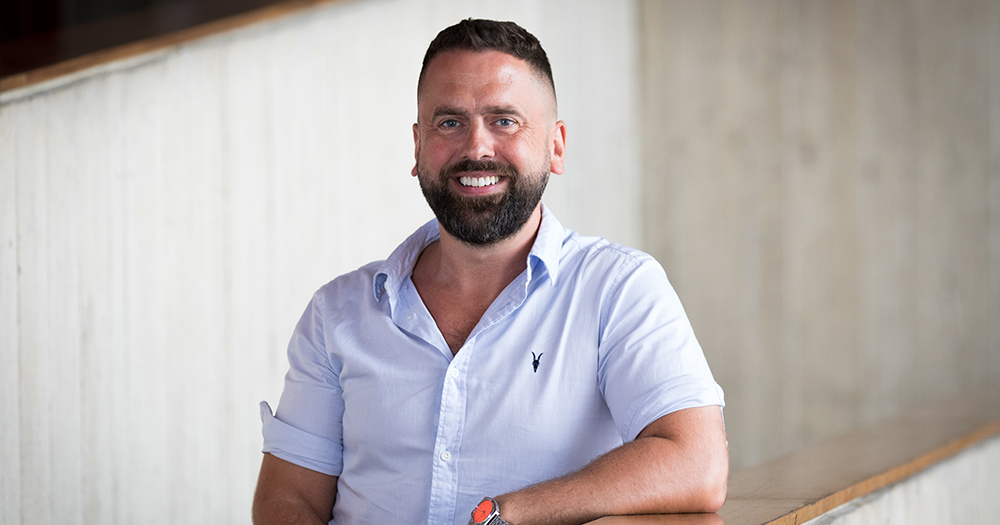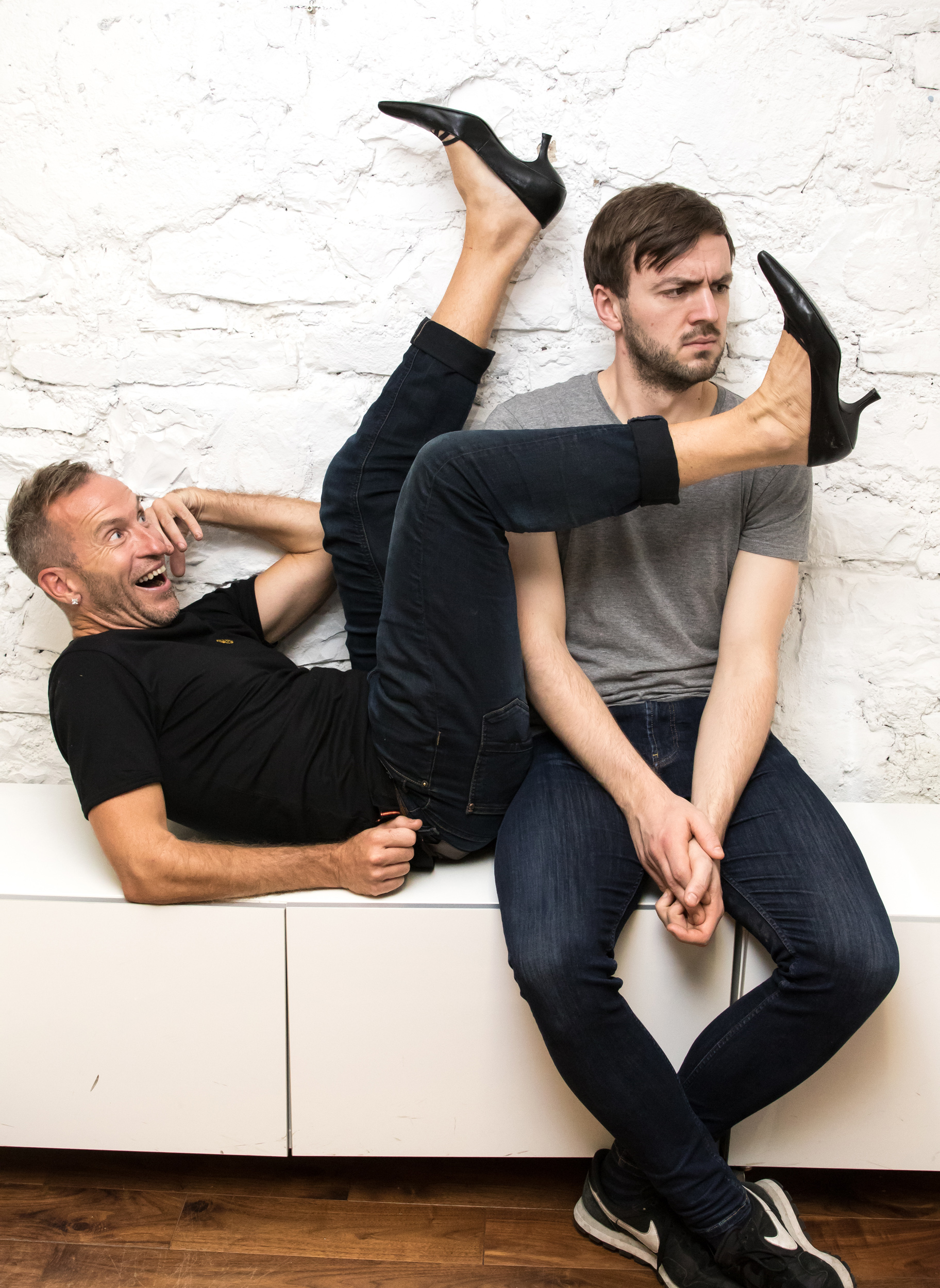If you could describe Men at Play in one sentence, what would it be?
Brothers, Fergus and Fionn, one gay and one straight, question and challenge the masculinity they’ve been inscribed with, by enacting poignant and sometimes conflicting memories from their rural Irish upbringing, through a humorous and tender medley of storytelling, movement, dance and song.
Apart from the obvious, what do you think are the stark differences between gay and straight men?
I’d start to answer that big question by pointing out our similarities. All men, gay or straight, are performing some version of masculinity. However, I think gay men become conscious at an early age of a certain ‘otherness’, probably stemming from a not-yet-discovered same-sex attraction. Feeling excluded from a male heteronormative identity as children, gay men sometimes adopt a proxy identity in later life. In Men At Play, Fergus and Fionn talk about gay tribes – masculine, feminine, jocks, twinks, bears, cubs, leather daddies, they also discuss drag. These versions of ‘camp’ can actually be a form of gender dissidence and political subversion, providing a liberating social visibility for gay men.
For straight men, I think it’s so much more straightforward. They too are born into a heteronormative environment, but they don’t feel so alienated from it, because they can identify with opposite-sex attraction. As a result they may be more comfortable adopting and performing the male identities around them (fathers, brothers, teachers, sport stars, pop stars). There’s no gender dissidence or subversion involved. Of course this too can present its own problems. Just as gay men put pressure on themselves to act or look a certain way, straight men also put huge pressure on themselves to be the version of masculinity that they’ve subscribed to. As the straight character Fionn says to his gay brother Fergus at one point in Men At Play “so maybe we’re not so different?”.
What is the biggest theme in ‘Men at Play’?
The play has many themes, but the principal one concerns the performativity of masculinity and the difficulties all men – gay or straight – face, in living up to the ideals of the gender inscribed upon them at birth, and reinforced by their families and society. Stemming from that, the play also deals with father-son relationships, mother-son relationships, mental health issues and loss. These themes are explored with great humour and tenderness, which, I hope, will provoke thought, laughter and perhaps a few tears.
Name one thing that would make the world better in terms of masculinity.
Men should learn to cry more when they need to. Crying is a basic human, biological and emotional function which men spend their lives suppressing.
What are you interested in exploring with all your work?
Most of the plays I’ve been involved in to date with Good Dog Theatre have revolved around gay themes. It was refreshing to write and direct Men At Play, which explores masculinity from a gay and straight perspective. In the future I guess I’d like to further explore gender and mental health issues. As a Tipperary country boy, born and bred, I am interested in approaching these topics from a rural Ireland perspective. Men At Play was heavily influenced by stories I’d collated of growing up in rural Ireland.
Who is your greatest theatrical influence, and why?
I am a huge fan of Bertolt Brecht. His theatrical device, the defamiliarization effect, i.e. actors addressing the audience, breaking the fourth wall, actors narrating a story or coming out of character, freeze frames, use of song, music and dance etc., have always excited me. These devices are very evident in Men At Play. A more modern influence, in the same vein, would be gay Canadian playwright, Daniel MacIvor. I produced and played a role in the Irish premiere of one of his award-winning plays In On It, in Smock Alley in 2015, which Good Dog Theatre used at the time to raise awareness and money for the Marriage Equality campaign.
Who is your ultimate queer icon?
Dolly Parton features in all my playlists. Love her.
If you could have any five people in history over to yours for dinner, who would they be?
Walt Whitman, Freddie Mercury, Countess Markievicz, Oscar Wilde and Eileen Gray – that pretty much covers all great dinner conversations – poetry, music, history, theatre and design.
Who would play you in the biopic of your life, and what would it be called?
I was once told I looked like Phoebe’s brother on Friends…ahem…but I’d much prefer to cast George Clooney and the title might be “O Brian, Where Art Thou?”.
What’s the best piece of life advice you ever received?
Get a dog.
Men At Play runs at the Galway Fringe Festival on Monday July 23, Tuesday 24, and Wednesday 25 at 8pm in the Columban Hall, Sea Road.
Tickets are €14/12 from www.galwayfringe.ie and at the door.
© 2018 GCN (Gay Community News). All rights reserved.

